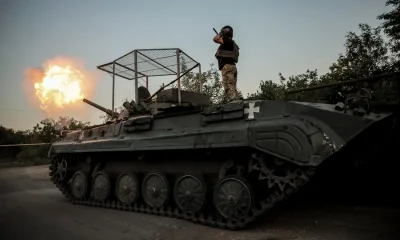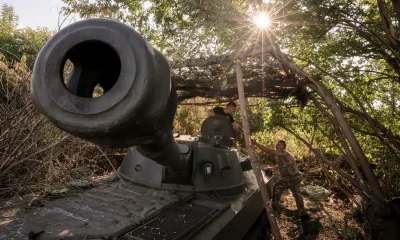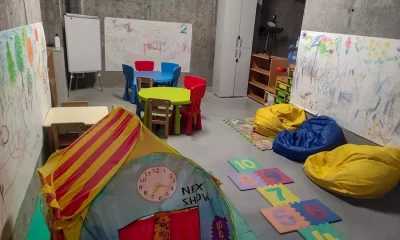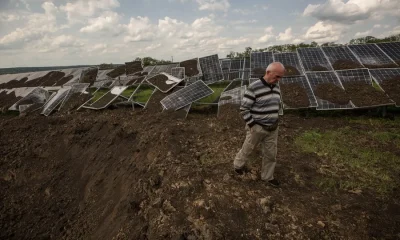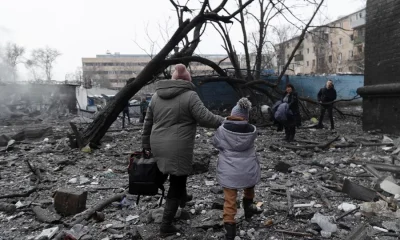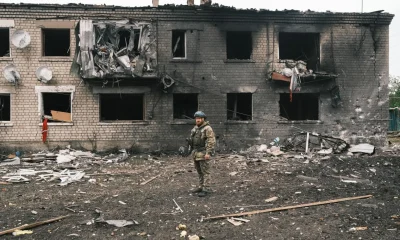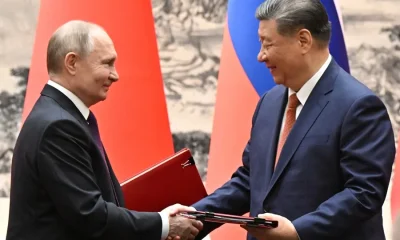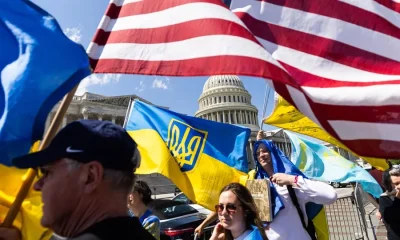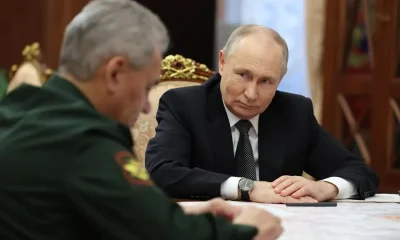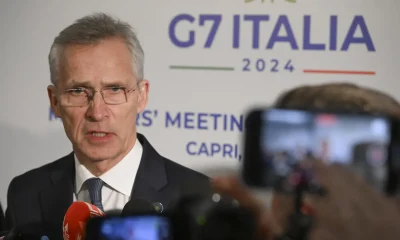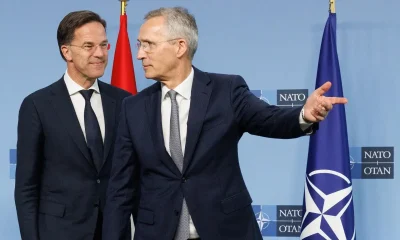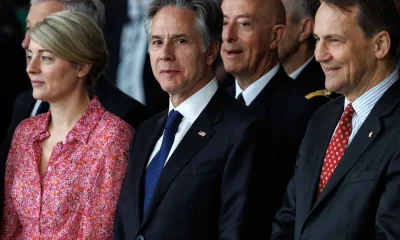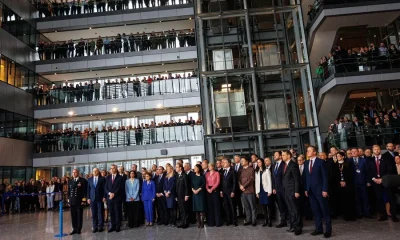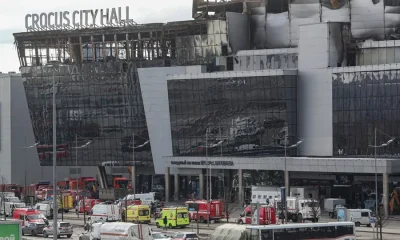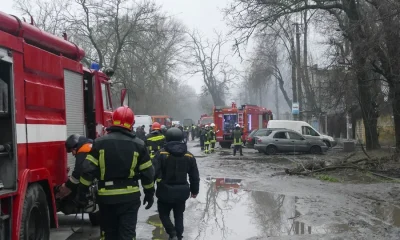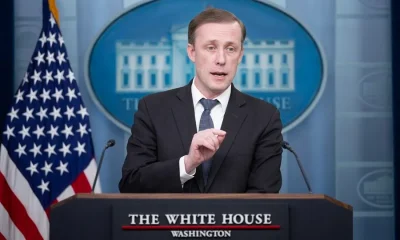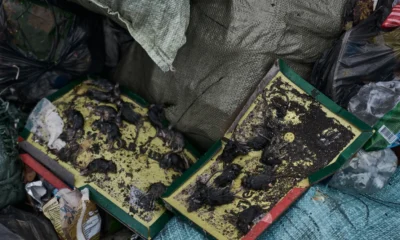International
Definitive green light in the EU to extend the suspension of tariffs on Ukraine for one more year
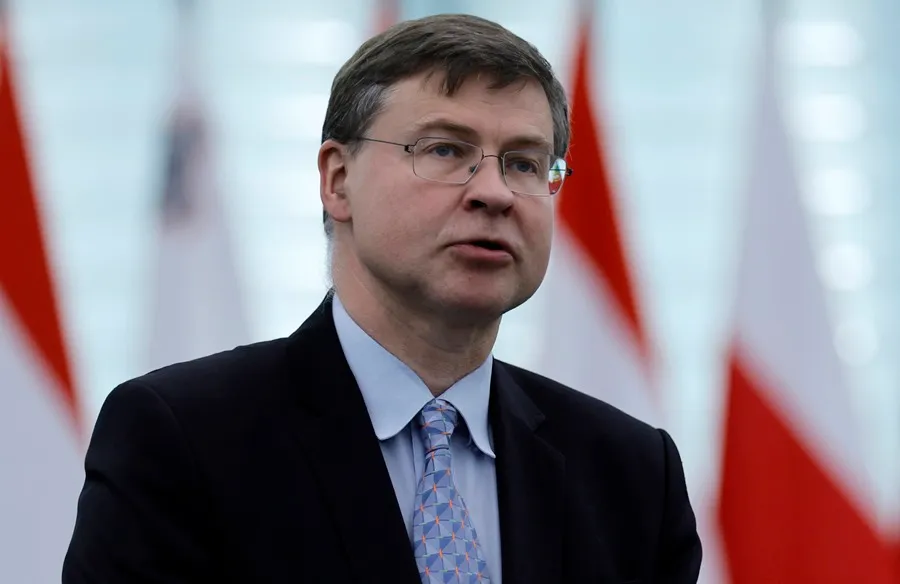
The European Union gave the definitive green light on Monday to extend for one more year, from next June 6 to June 5, 2025, the suspension of tariffs and quotas on imports of Ukrainian products as a measure to support Kiev in the face of Russian aggression.
This measure, approved by the Council of the EU (the countries), is a “vital” support of the Union for the Ukrainian economy in the face of the “devastation caused by Russia’s unprovoked war of aggression,” said the executive vice president of the European Commission and head of Trade, Valdis Dombrovskis, in a statement.
The suspension of tariffs for one more year, to which the plenary of the European Parliament had given its approval on April 23, will guarantee “that we keep Ukrainian products in circulation, taking into account at the same time the concerns of the EU agri-food sector,” Dombrovskis said.
The new extension includes safeguard measures to protect certain European products, essentially agricultural, in the event that Ukrainian imports not subject to tariffs generate problems in their local markets, something that some States had complained about in recent months.
“Thanks to the income generated by Ukrainian exports to and through the EU, Ukraine will have more financial means to win this war and will be in a stronger position to recover from it,” said the Community executive vice president.
The suspension of tariffs and exports of Ukrainian cereals by the so-called European solidarity lines have made it possible that, despite the war, trade in Ukrainian products has remained relatively stable, the European Commission stressed in a statement.
EU imports from Ukraine amounted to 22.8 billion euros in 2023, compared to 24 billion euros in 2021, just before the war that broke out in 2022.
According to what was approved in the EU, the Commission can act quickly and impose any measure it deems necessary if there is a significant disturbance in the Union market as a whole or in the markets of one or more Member States of the Community club as a result of Ukrainian imports.
As part of the reinforced safeguard measures to protect the farmers of the Twenty-seven, the Commission can activate “an emergency brake” for particularly sensitive agricultural products such as poultry, eggs, sugar, oats, grains, corn and honey.
If imports of these products exceed the average volume of imports recorded in the second half of 2021 and all of 2022 and 2023, tariffs may be reimposed.
International
U.S. and Mexico Reach Deal to Address Water Deficit Under 1944 Treaty
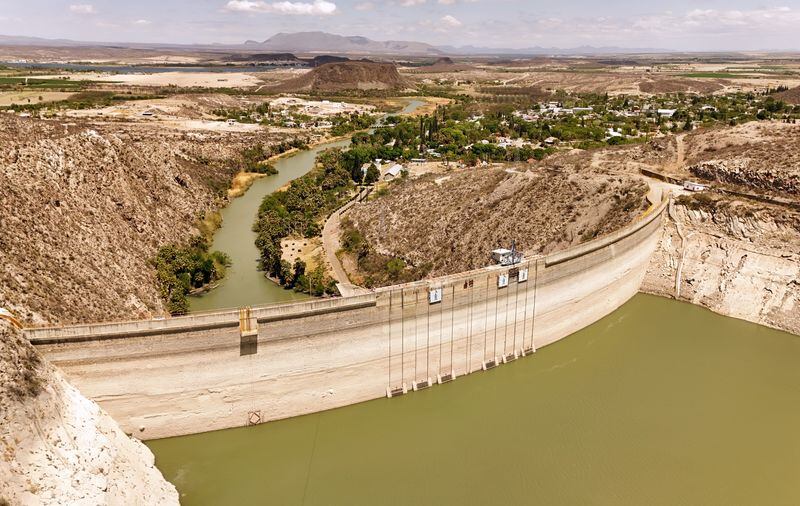
The United States and Mexico have reached an agreement to comply with current water obligations affecting U.S. farmers and ranchers and for Mexico to cover its water deficit to Texas under the 1944 Water Treaty, the U.S. Department of Agriculture said in a statement.
The department уточified that the agreement applies to both the current cycle and the water deficit from the previous cycle.
On Monday, U.S. President Donald Trump accused Mexico of failing to comply with the water-sharing treaty between the two countries, which requires the United States to deliver 1.85 billion cubic meters of water from the Colorado River, while Mexico must supply 432 million cubic meters from the Rio Grande.
Mexico is behind on its commitments. According to Washington, the country has accumulated a deficit of more than one billion cubic meters of water over the past five years.
“This violation is severely harming our beautiful crops and our livestock in Texas,” Trump wrote on Monday.
The Department of Agriculture said on Friday that Mexico had agreed to supply 250 million cubic meters of water starting next week and to work toward closing the shortfall.
Agriculture Secretary Brooke Rollins, quoted in the statement, said Mexico delivered more water in a single year than it had over the previous four years combined.
Trump has said that if Mexico continues to fall short of its obligations, the United States reserves the right to impose 5% tariffs on imported Mexican products.
Mexico’s Deputy Foreign Minister for North America, Roberto Velasco, said that a severe drought in 2022 and 2023prevented the country from meeting its commitments.
International
Several people shot in attack on Brown University campus
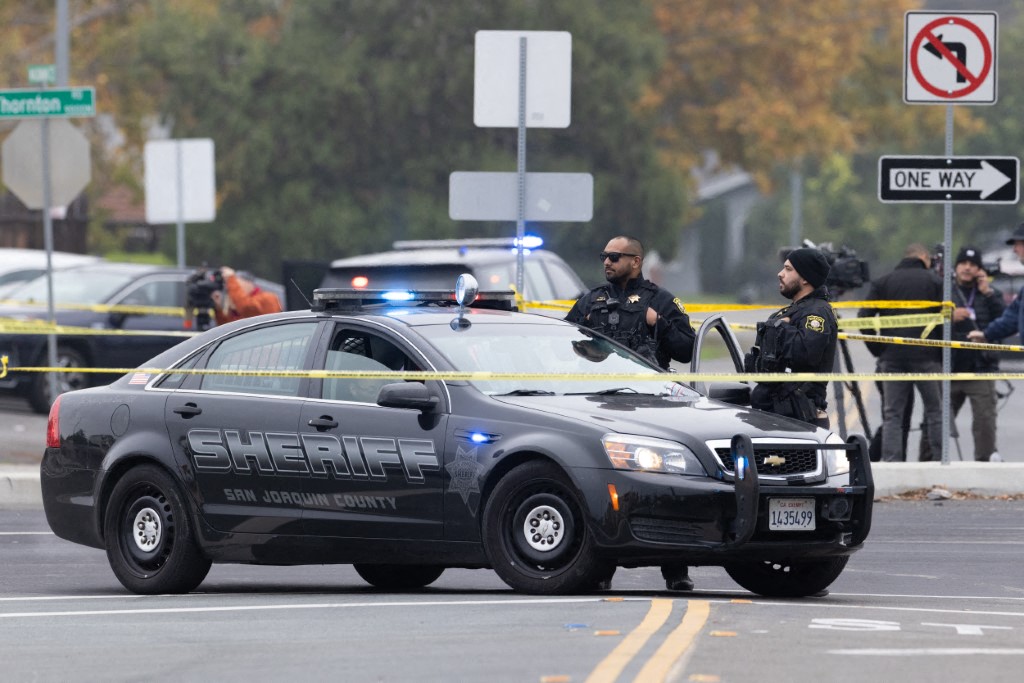
Several people were shot on Saturday in an attack on the campus of Brown University, in the northeastern United States, local police reported.
“Shelter in place and avoid the area until further notice,” the Providence Police Department urged in a post on X. Brown University is located in Providence, the capital of the state of Rhode Island.
U.S. President Donald Trump said on his social media platform Truth Social that he had been briefed on the situation and that the FBI was on the scene.
At 5:52 p.m. local time (11:52 p.m. GMT), Brown University said the situation was still “ongoing” and instructed students to remain sheltered until further notice.
After initially stating that the suspect had been taken into custody, Trump later posted a second message clarifying that local police had walked back that information. “The suspect has NOT been apprehended,” the U.S. president said.
International
Colombia says it would not reject Maduro asylum request as regional tensions escalate
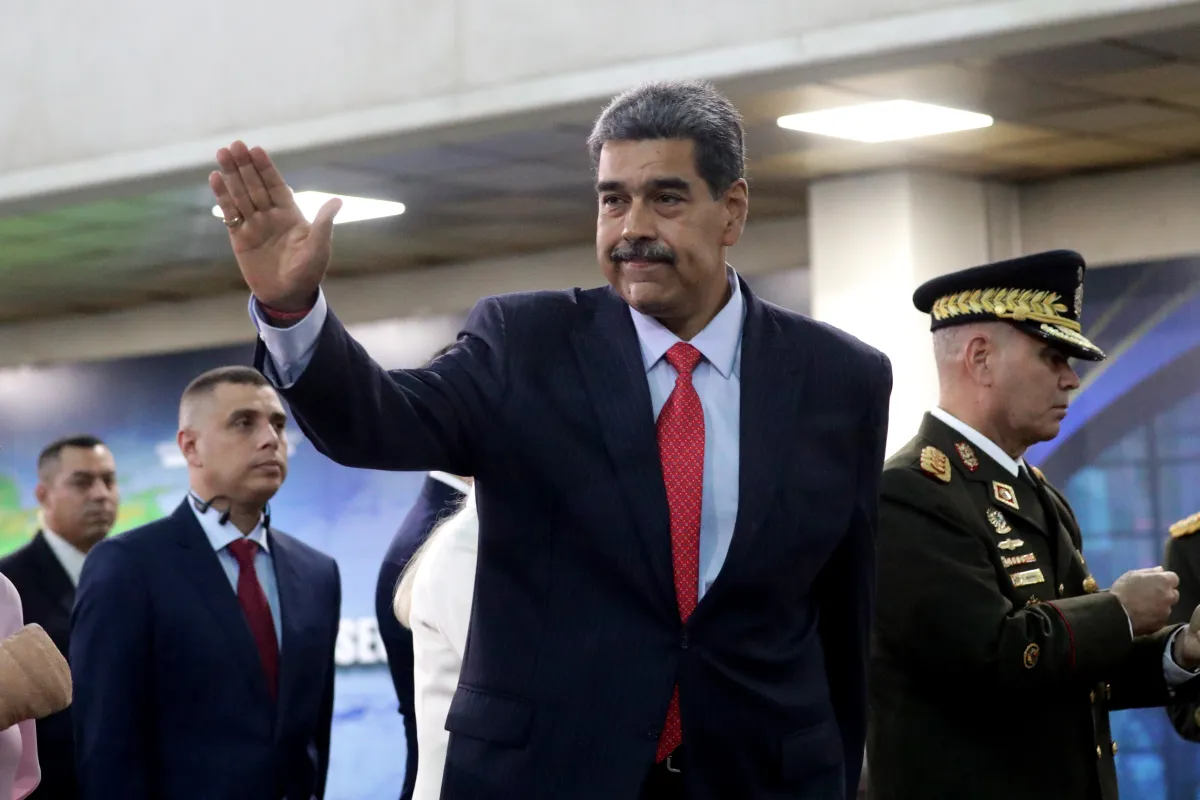
The Colombian government stated on Thursday that it would have no reason to reject a potential asylum request from Venezuelan President Nicolás Maduro should he leave office, as regional tensions persist over the deployment of U.S. military forces in the Caribbean since August.
“In the current climate of tension, negotiations are necessary, and if the United States demands a transition or political change, that is something to be assessed. If such a transition results in him (Maduro) needing to live elsewhere or seek protection, Colombia would have no reason to deny it,” said Colombian Foreign Minister Rosa Villavicencio in an interview with Caracol Radio.
However, Villavicencio noted that it is unlikely Maduro would choose Colombia as a refuge. “I believe he would opt for someplace more distant and calmer,” she added.
Colombian President Gustavo Petro also commented on Venezuela’s situation on Wednesday, arguing that the country needs a “democratic revolution” rather than “inefficient repression.” His remarks followed the recent detention and passport cancellation of Cardinal Baltazar Porras at the Caracas airport.
“The Maduro government must understand that responding to external aggression requires more than military preparations; it requires a democratic revolution. A country is defended with more democracy, not more inefficient repression,” Petro wrote on X (formerly Twitter), in a rare public criticism of the Venezuelan leader.
Petro also called for a general amnesty for political opponents and reiterated his call for forming a broad transitional government to address Venezuela’s prolonged crisis.
Since September, U.S. military forces have destroyed more than 20 vessels allegedly carrying drugs in Caribbean and Pacific waters near Venezuela and Colombia, resulting in over 80 deaths.
U.S. President Donald Trump has repeatedly warned that attacks “inside Venezuela” will begin “soon,” while Maduro has urged Venezuelans to prepare for what he describes as an impending external aggression.
-
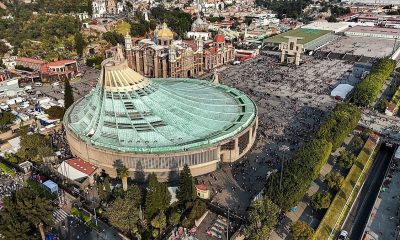
 International5 days ago
International5 days agoMexico City prepares for 13 million pilgrims at Basilica of Guadalupe
-

 International4 days ago
International4 days agoWashington declares State of Emergency as atmospheric river brings severe flooding
-

 International4 days ago
International4 days agoU.S. to require five-year social media history from tourists under Visa Waiver Program
-

 Central America5 days ago
Central America5 days agoHonduras’ electoral chief reports ongoing technical issues but says results remain intact
-

 Central America5 days ago
Central America5 days agoU.S. accuses Ortega regime of systematic human rights abuses in Nicaragua
-

 Central America5 days ago
Central America5 days agoU.S. finds no evidence of fraud in Honduras election despite delays
-

 International3 days ago
International3 days agoCuba battles out-of-control dengue and chikungunya epidemic as death toll rises to 44
-

 Central America4 days ago
Central America4 days agoOAS and EU urge honduran political actors to respect vote results and avoid unrest
-

 Central America3 days ago
Central America3 days agoHonduras election crisis deepens as CNE president denounces intimidation attempts
-

 International3 days ago
International3 days agoColombia says it would not reject Maduro asylum request as regional tensions escalate
-

 International1 day ago
International1 day agoSeveral people shot in attack on Brown University campus
-

 International4 days ago
International4 days agoSix ecuadorian soldiers jailed pending trial for alleged extrajudicial execution
-

 International3 days ago
International3 days agoEcuador on track for record violence as homicides hit highest level in Latin America again
-

 International1 day ago
International1 day agoU.S. and Mexico Reach Deal to Address Water Deficit Under 1944 Treaty
-

 Central America4 hours ago
Central America4 hours agoPanama seizes over three tons of drugs hidden in Caribbean port container

























